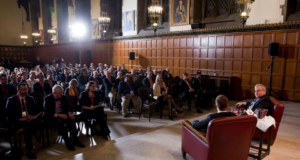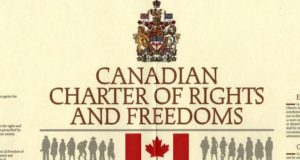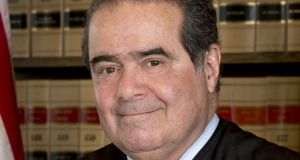Earlier this month, I had the true privilege of taking part in a discussion with Justice David Stratas of the Federal Court of Appeal, who is one of Canada’s most prominent jurists, on the subject of statutory and constitutional interpretation. The conversation was part of the Runnymede Society’s annual Law & Freedom Conference. Justice Stratas and I covered a lot ...
Read More »Tag Archives: original meaning
The Original “Living Tree”
One of the main arguments in Canada in favour of the “living tree” is that it has deep roots in our constitutional tradition. As the Supreme Court of Canada said in Reference Re Same Sex Marriage, the living tree is “one of the most fundamental principles of Canadian constitutional interpretation.”[1] The argument goes something like this: beginning with the famous ...
Read More »Has the Supreme Court Moved Beyond the “Living Tree”?
One of the first things law students are taught is that our Constitution is a “living tree.” The Supreme Court has said that the living tree doctrine, which holds that our Constitution must be capable of evolving to meet new social realities, is “one of the most fundamental principles of Canadian constitutional interpretation” (See Reference Re Same Sex Marriage, at ...
Read More »Why I am Not a Conservative Either: Thoughts on Chief Justice Joyal’s Address
Glenn D. Joyal, Chief Justice of the Court of Queen’s Bench of Manitoba, gave the keynote address at last January Canadian Constitution Foundation’s recent Law and Freedom Conference. His talk, “The Charter and Canada’s New Political Culture: Are We All Ambassadors Now?”, was interesting and thought-provoking. Although the prepared text has been available on the website of Advocates for the Rule ...
Read More »Sirota Discusses Canada’s Dirty Little Secret: Originalism
Legal professor, proficient blogger, ARL contributor, and self-described “law nerd” Léonid Sirota recently gave a talk at Université de Montréal on the subject of constitutional originalism. This well-received talk was hosted by the Runnymede Society and can be viewed here. Mr. Sirota’s talk was based upon two excellent papers that he co-wrote with Benjamin Oliphant, one of which has been published ...
Read More »Seven’s Wonders and Sixty Colours: More on the Interpretation of Section 7
In my last article, “Reaffirming the Case for Constraint“, I replied to Leonid Sirota’s article “How to do Constitutional Adjudication,” which was itself a response to my paper, “The Case for a Constrained Approach to Section 7.” Mr. Sirota also wrote a piece entitled “Seven’s Sins” in response to my original paper. I had intended to reply to “Seven’s Sins” ...
Read More »The Comeau Decision is a Welcome Example of Serious Doctrinal Analysis
Constitutional law and alcohol are forever linked. Many famous distribution of powers cases giving rise to new federalism doctrine were about alcohol. It should not be a surprise that we can now add another case to the list. R. v. Comeau, coming out of the New Brunswick Provincial Court, is a novel judicial meditation on Canadian federalism, specifically regarding the ...
Read More »Seven’s Sins? A Response to Asher Honickman’s Take on Section 7 of the Charter
This is the first of two articles Mr. Sirota has written in response to Asher Honickman’s essay entitled “The Case for a Constrained Approach to Section 7.” The second article will be published shortly, following which Mr. Honickman will publish a reply. This article was originally published at Double Aspect, Mr. Sirota’s award winning blog. In a very interesting essay written for ...
Read More »The Case for a Constrained Approach to Section 7
This article will appear in the upcoming edition of Law Matters, a publication of the Canadian Bar Association Introduction The consensus in the academic community when it comes to interpreting the Charter is that more is better. There is little debate that the Charter is a “living tree,” such that its meaning must “evolve” over time so that it “accommodates ...
Read More »The Need for Doctrine: Scalian Originalism and Canadian Purposivism
A legal lion passed away recently. One might argue that the death of Justice Antonin Scalia means much more for the American legal audience than the Canadian one. After all, Scalia’s death tossed the Supreme Court of the United States into the centre of an already contentious election season and brought to the forefront the divisively partisan tendencies of the ...
Read More » Advocates for the Rule of Law
Advocates for the Rule of Law








